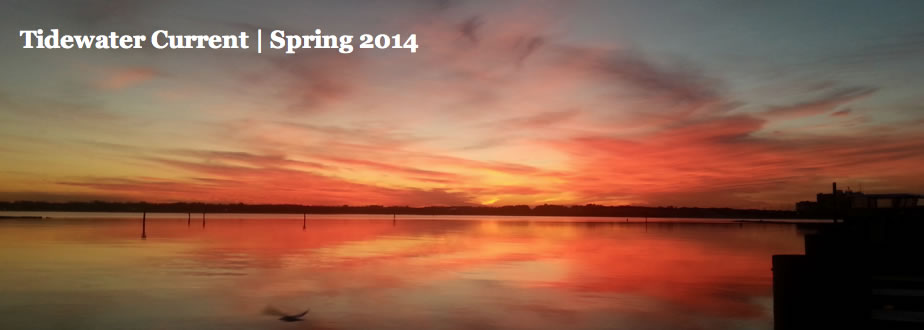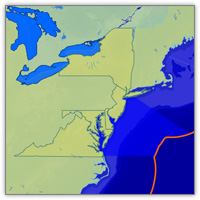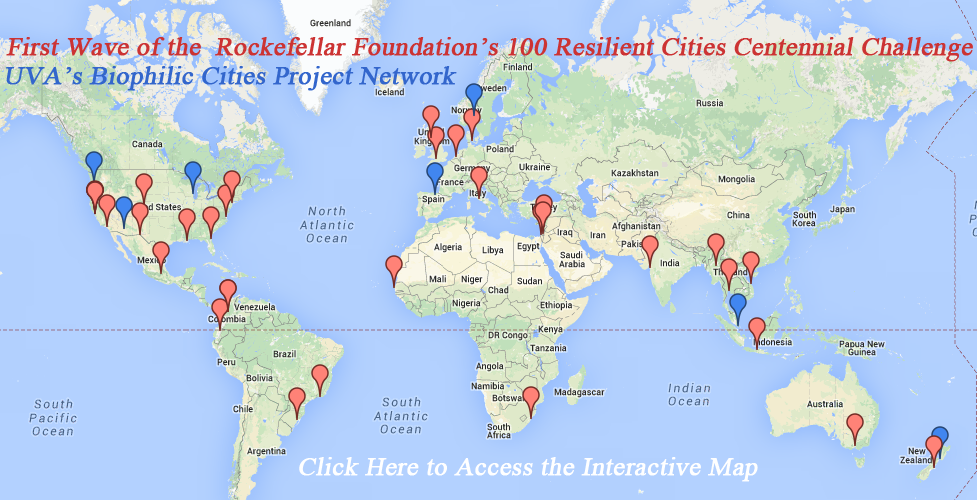
Transmitting news and infomation about sustainable endeavors in Coastal Virginia and beyond. Updated Weekly.
Virginia Participates in Pioneering Planning Partnerships
Posted March 31, 2014 - by Carol Brighton
Ground-breaking planning programs with Virginia ties are being launched. Two have an urban emphasis covering a host of cities spanning the globe, while another's focus is close to home and covers new territory: the ocean. The common thread behind all the initiatives is that through collaboration, creative approaches can be developed and shared so mutual goals can be achieved more efficiently.
Norfolk Selected out of 372 Applicant Cities to Participate in a Rockefeller Foundation Program
The Rockefeller Foundation’s 100 Resilient Cities Centennial Challenge recently announced its selection of 33 cities to participate in the inauguration of a unique cooperative endeavor. As one of the 11 founding partners in the US, Norfolk will participate in the introduction of this transformative platform to improve city functionality and resiliency in the face of a future threatened by a variety of stresses.
Like Norfolk, many of the cities in the program are expected to bear a burden as a result of climate challenges. While Norfolk suffers from recurrent flooding, some cities must endure another water woe: lack of supply. In addition to considering vulnerabilities posed by a changing climate, basic city issues, like transportation and population growth will be addressed. The ultimate goal is to achieve cities that are better prepared to weather expected change as well as more frequent 100 year events.
In addition to providing tools and resources, the foundation will facilitate the exchange of ideas and networking among city planners. This includes funding for a chief resilience officer (CRO) in every city.
To learn more about the program, view the video of the 100 Resilient Cities Norfolk Kickoff in February or visit to the 100resillentcities website.
Biophilic Cities Project Launched
The Biophilic Cities Network is another exceptional initiative that also embraces resiliency. Sponsored by the University of Virginia School of Architecture, the project was officially launched at a conference at the University last fall that included presentations from participants hailing from New Zealand, Rio de Janeiro, Singapore and more. The goal of this initiative is to illuminate a myriad of inventive approaches developed to restore and integrate nature and ecological services back into the urban environment.
Creating or regenerating habitat and connecting landscapes is the focus of efforts in member cities and includes:
Better city navigation via public transportation and pedestrian/wildlife pathways;
Increased plant coverage via gardens, reforestation and orchard projects as well as the vegetated transformation of roofs, walls and under utilized spaces like alleys, bus stops, medians and public parking spots; and
Stream day lighting and stormwater management including rain gardens, wetland restoration and water parks that also provide recreational space.
While incorporating nature into cities creates a more adaptive and resilient physical environment, it likewise has a positive impact on the human psyche. Studies have shown that exposure to nature improves human health and well being and even plays a role in deterring crime. Read more about the positive impact of nature on Pinterest.
To learn more about the challenges and some successful solutions identified by cities engaged in the resiliency programs, check out the interactive map. Read more at the 100 Resilient Cities Blog and the Biophilic Cities Blog
 Spatial Planning Moves out to Sea
Spatial Planning Moves out to Sea
Over half the country’s population resides within close proximity to the coast and human activity and impacts spill offshore. Existing uses like global trade are expanding while new uses, like wind energy development are emerging. With an increasingly crowded ocean, the need for coordinated management to ensure environmental and economic integrity is being recognized through the implementation of a National Ocean Policy.
Through a collaborative structure, plans are being developed regionally. The Mid Atlantic region extends from New York to Virginia and covers the outer continental shelf from the shoreline out to the 200 mile EEZ delineation. Represented by a myriad of federal and state agencies as well as Shinnecock Indian Nation, members of the Mid Atlantic Regional Planning Board are currently formulating a blueprint for the process. The group met in mid March at the Norfolk Sheraton to provide information and hear comments from the general public. A draft framework plan is available for review at the BOEM website and includes links to submit comments.
The goal of the process is to bolster marine stewardship while supporting sustainable economic development. Because so many agencies have jurisdiction over the coasts, these goals have been hindered by a lack of collaboration and sometimes, contradictory rules. The body will have no regulatory authority but will coordinate among all agencies and stakeholders to increase government efficiency by reducing redundancies, addressing inconsistent policy and perhaps more importantly to provide for data collection and sharing needed for informed decision making.
To serve the growing need for comprehensive ocean data and information management, the Mid Atlantic Regional Council on the Ocean has established an accessible web based portal that serves as a repository for ecosystem based data storage. Geospatial and other earth observing system products can be accessed through the portal. Public users are able to explore and visualize a spectrum of spatial data sets representing every segment of ocean use including, marine life, security, maritime transport and more. Through federal partnerships with stakeholders, ongoing scientific research will continually be assimilated into the portal.
Explore the MARCO portal | Learn more about the National Ocean Policy | Read the DRAFT Mid Atlantic Planning Framework
CLICK HERE TO SUBMIT AN E-MAIL COMMENT ON THE DRAFT PLAN BY APRIL 15
Check the Archive for Previous Posts
All Rights Reserved. Disclaimer.


